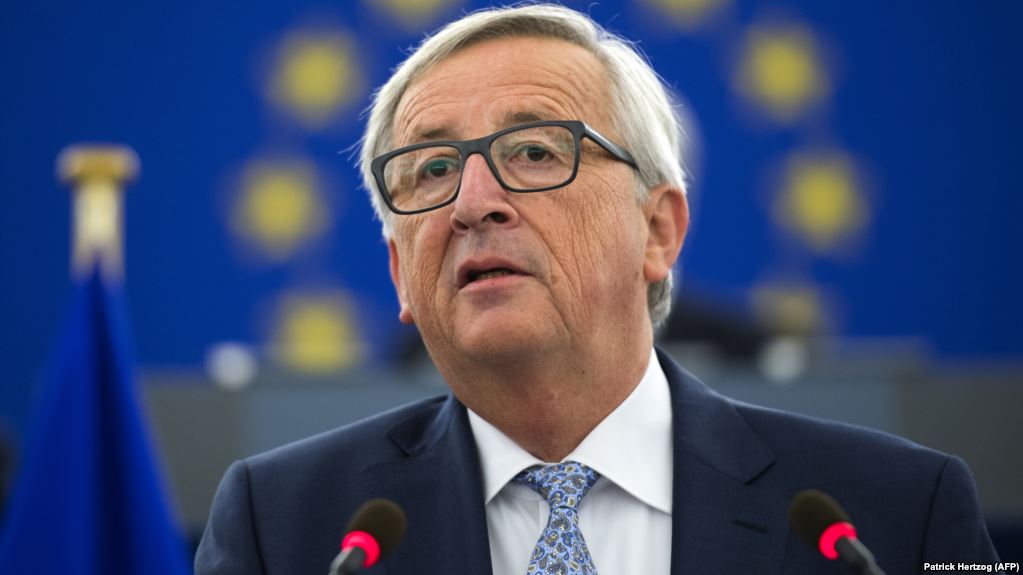
EU-BALKANS TALKS
EU-Balkans accession talks to push for continued resolution of territorial disputes

Today, Bulgaria’s prime minister will host talks between the heads of the Balkan states and European Commission Chief Jean-Claude Juncker.
The EU recently agreed to an enlargement strategy that aims to incorporate six Balkan countries—Bosnia and Herzegovina, Serbia, Montenegro, Kosovo, Macedonia and Albania—into the EU by 2025.
But member states remain divided on the plan. While Poland, Italy and Austria have expressed support for the membership drive to counter foreign influence in the region, other actors have been more hesitant.
Germany, for example, says the plan is too ambitious, arguing that satisfying the many legal prerequisites for the accession of six separate countries is logistically unattainable under the proposed timeline.
Mr Junker himself has added that border disputes in the region, particularly Serbia’s lack of recognition of Kosovo as a sovereign state, could jeopardise the plan.
Given the significant nature of the territorial disputes Mr Junker and others have voiced concerns about, it is unlikely that all six states will make the 2025 accession hurdle in time. Additionally, watch out for the extent to which diplomatic pressure from EU member states in favour of speedy accession confirms or disproves Germany’s fears.
CHINESE TRADE
Chinese imported waste ban to impact US recyclables

Effective today, China will implement new regulations banning select imported waste.
The so-called “National Sword” policy will ban 24 types of solid waste, including plastic, unsorted paper and crude textiles. According to China’s environment ministry, the new regulations are designed to prevent further damage to China’s environment and public health. Chinese officials have alluded to concerns over the contamination levels of the imported materials and to a general commitment to a greener environmental policy as motives for the policy shift.
Countries that export large amounts of solid waste products to China—such as the US, which exported $5.6 billion worth of waste to China last year—face the decision of processing more of the wastes themselves or shipping them elsewhere.
Industry leaders affected by the policy argue that the new regulations only matter to the extent to which they are enforced. Chinese environmental officials have argued that they will indeed enforce the policy and remain vigilant. Watch out for the extent to which the policy has a noticeable economic impact on the countries it targets. More concretely, look out for whether permits continue to be denied to solid waste importers, as they currently are.
ETHIOPIAN POLITICS
Ruling coalition party meets to choose the next prime minister

The council of the governing Ethiopian Peoples’ Revolutionary Democratic Front, a coalition of four ethnic and regional parties, will meet in Addis Ababa today for a three-day congress to select their next chairman and new prime minister. The coalition controls all seats in the disputed parliament.
Outgoing PM Hailemariam Desalegn resigned on February 15 to quell two years of violent street protests that have left hundreds dead and thousands in state custody. Much of the unrest arises from the Oromo and Amhara ethnic groups, who together make up 61% of the country’s population and are aggrieved at years of political and economic marginalisation.
Expect tense negotiations in a coalition traditionally dominated by the Tigrayan ethnic TPLF party. Given the ethnic tensions, a leading contender is Dr Abiy Ahmed, an Oromo from the Oromo party of the coalition. If he is chosen, it would be a historic first. However, it will likely only stem the protests for now as sidelined opposition groups continue to call for genuine reforms to allow real pluralism in Africa’s second most populous country.
Bibi contributes to our analysis of European affairs for The Daily Brief. She also serves as a copy editor for the publication.

